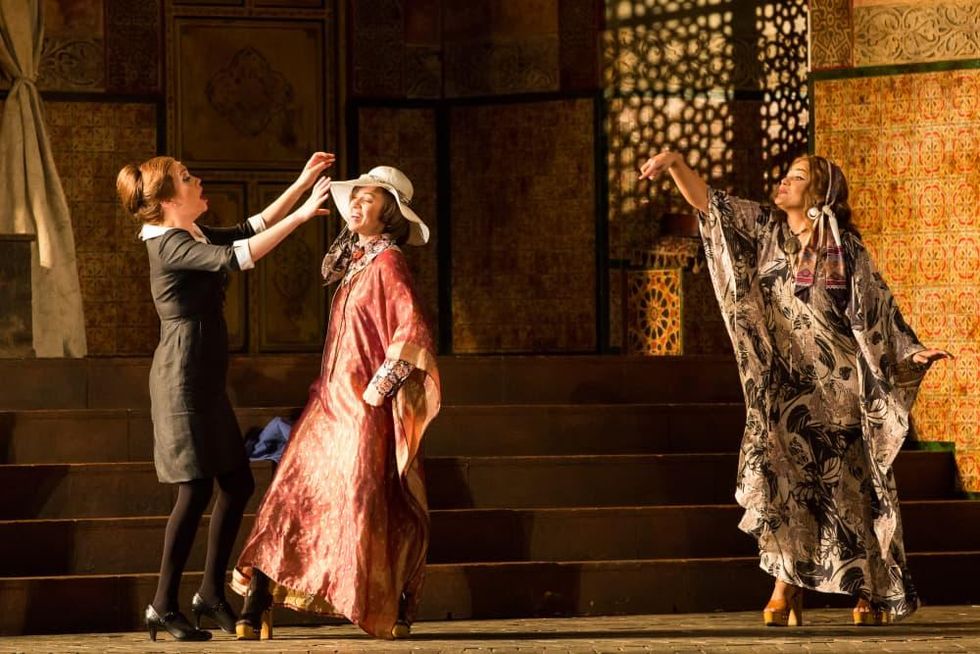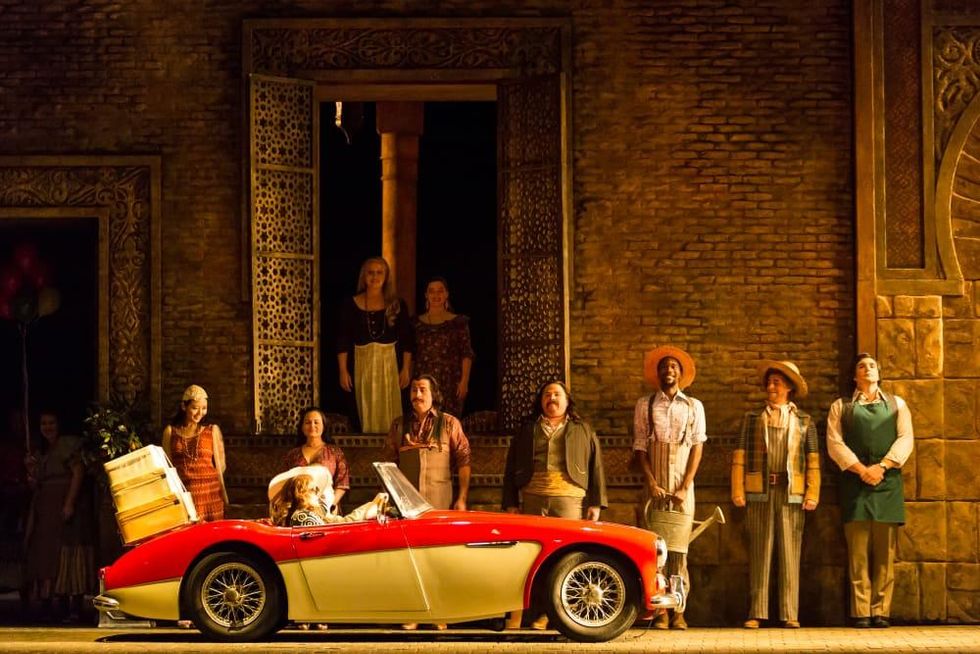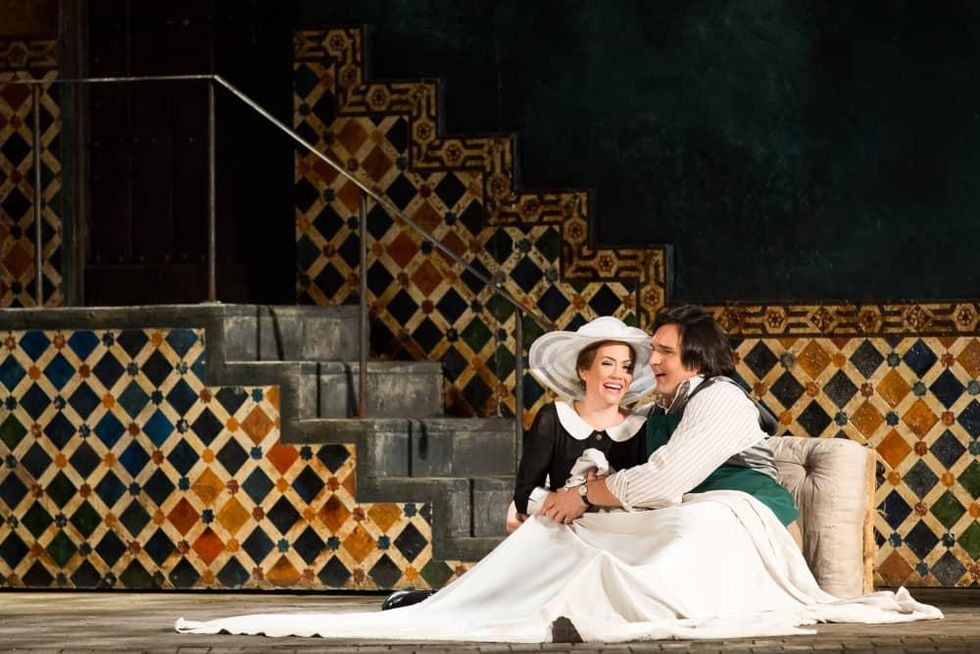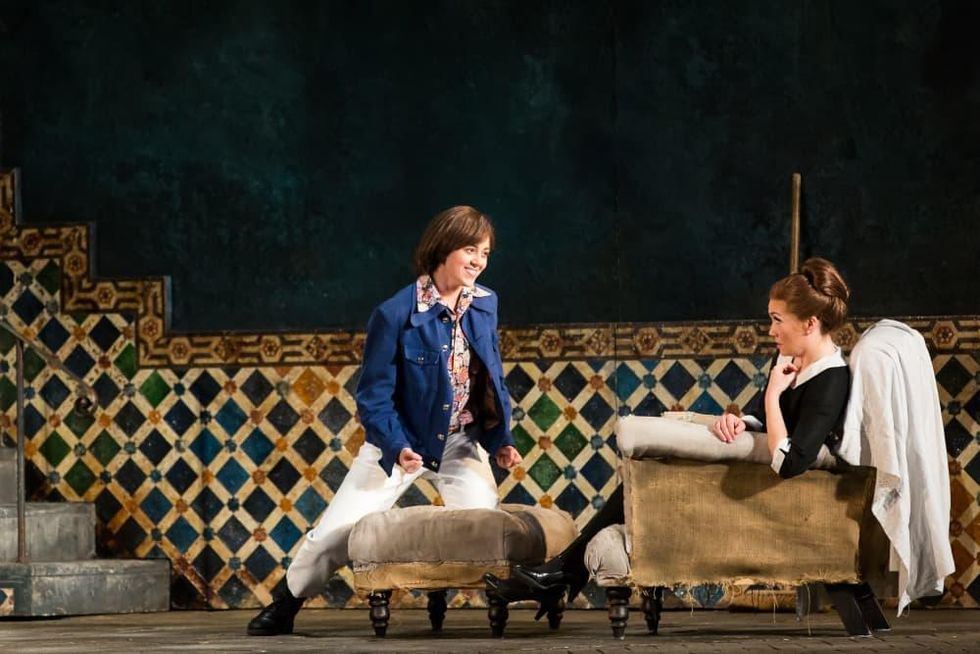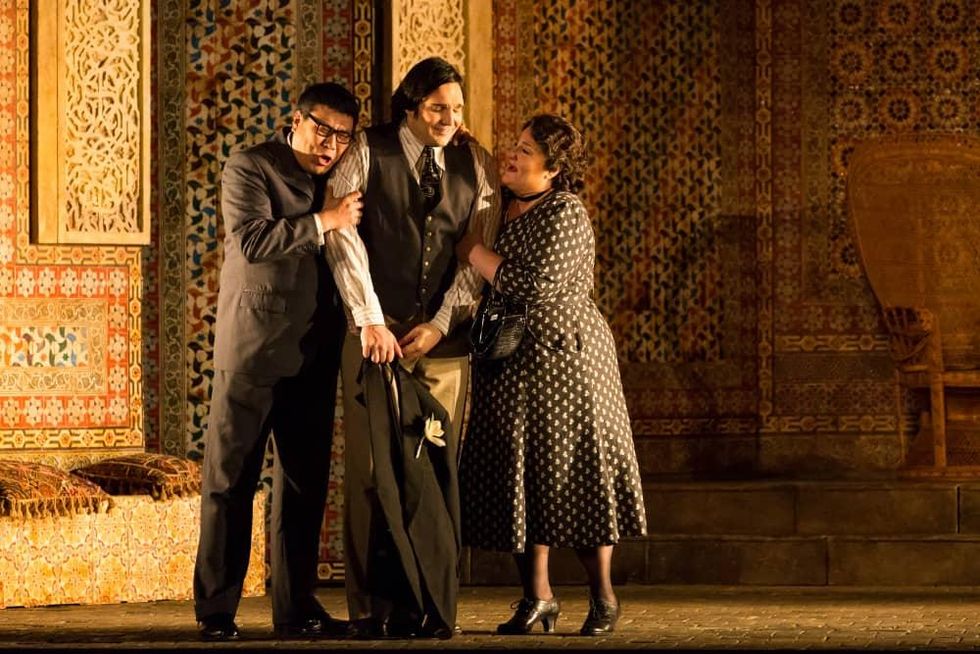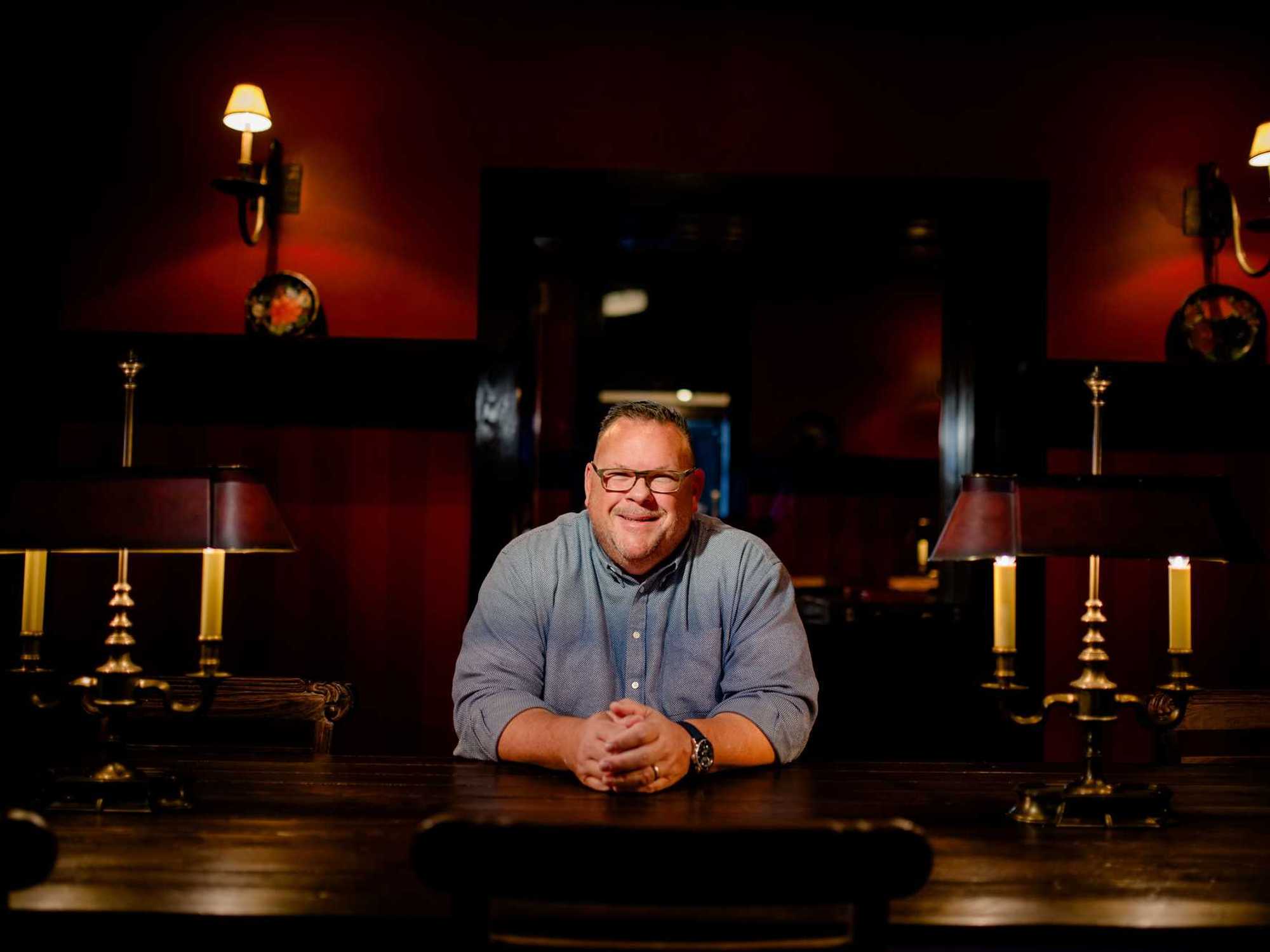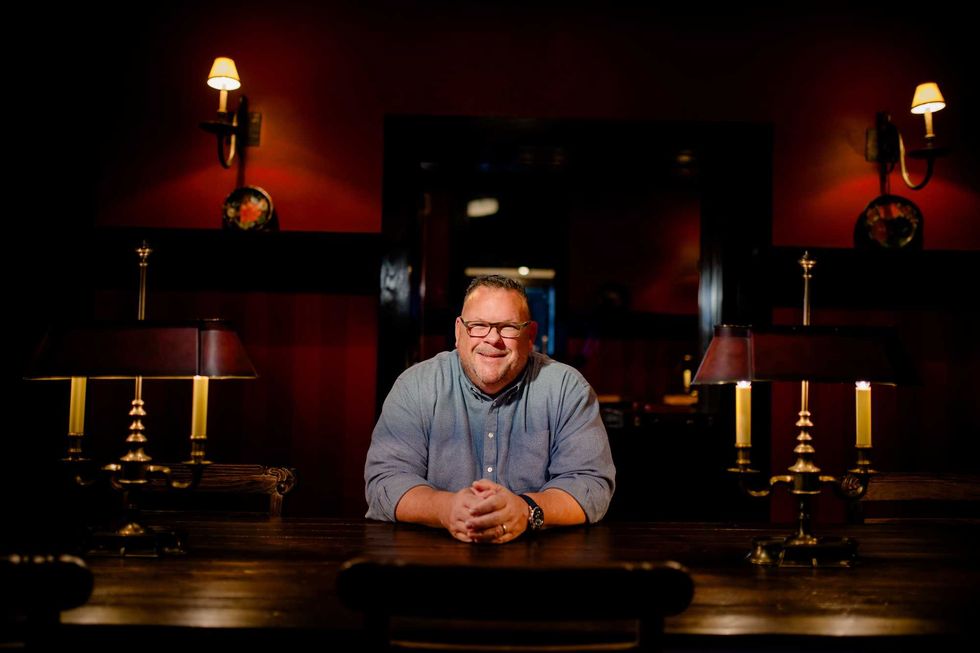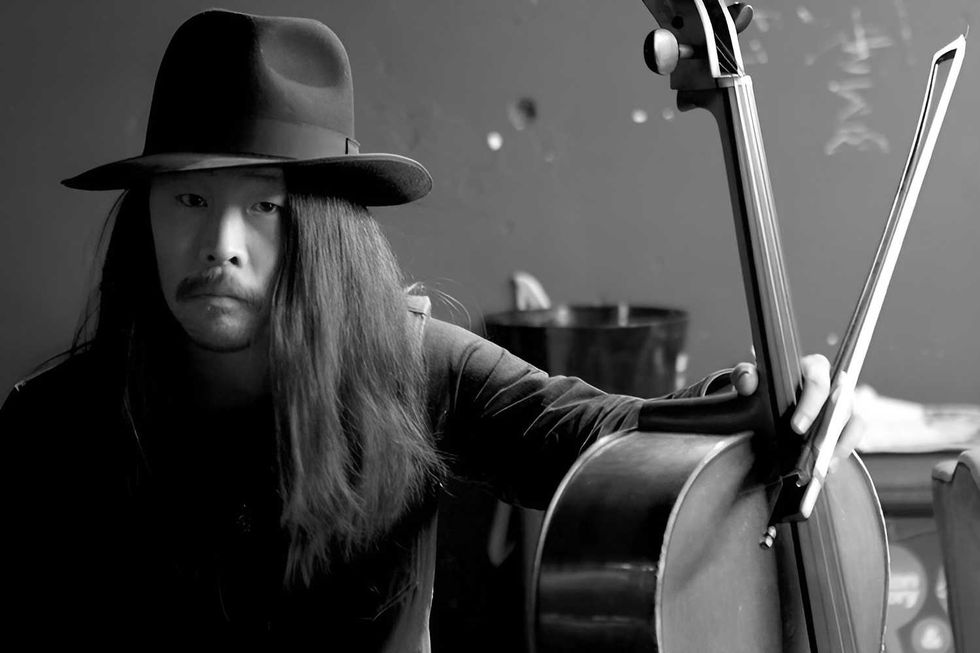The Review Is In!
The show must go on, even if Figaro falls flat on its face
There are a million reasons why Mozart's supremely elegant The Marriage of Figaro has become one of the world's most beloved operas. The overture alone has won centuries of fans. Understated yet bawdy, nuanced yet filled with show-stopping arias, this pleasing and poignant "opera buffa" is without doubt one of the primary pillars upon which all of the rest of opera perches.
What a shame, then, that Houston Grand Opera's co-production with Glyndebourne Festival Opera is the first major flop in what has otherwise been a stellar season.
I should have known that a failure was on the horizon when it was announced late Friday afternoon that Joshua Hopkins, who was supposed to sing the role of Count Almaviva, had canceled due to illness. Last-minute cancelations are a common occurrence in the opera world, especially during winter. The email I received stated that "...the role will be sung from the side by HGO Studio artist Ben Edquist, who has learned the part but did not have time to rehearse the intricate staging. The stage director Ian Rutherford will walk the part."
Now, we've all heard that maxim about "walking the walk" and "talking the talk." You know, where the same person has to do both of those things in order to command respect? Yes, it applies in the opera world. You cannot perform a role just because you can walk through the paces of the "intricate staging" while half-heartedly lip syncing some parts of some of the arias and none of the recitative. While a young baritone in front of a music stand sings off to one side of the stage, I might add.
With his strange bushy mustache and Groucho Marx gait, Rutherford seemed more as if he was trapped somewhere in between The Wizard from The Wizard of Oz and a haggard Walter White from Breaking Bad. This is a rather long opera in four acts. Rutherford's presence on stage, ridiculous at best, turned it into three-and-a-half hours of torture.
Character-by-proxy?
Having attended operas on several continents for more than four decades, one might think I had already encountered this character-by-proxy situation. I have not, and I have seen hundreds of productions. I have, however, endured numerous cancelations from some of my favorite stars. I'll never forget arriving once at Lincoln Center to see Jessye Norman in Ariadne auf Naxos, only to find hundreds of people selling their tickets for half-price on the street. Jessye had canceled, as she was known to do on many occasions. The Met had an understudy ready, and I sat through it and still enjoyed myself.
Legend has it that Julia Migenes-Johnson was shopping in a New Jersey mall when she received a call to appear in Alban Berg's Lulu at the Metropolitan Opera. That same night! I saw her reign in that production, and she was unforgettable. It was a career-defining moment for the young soprano, and she did more than just step up to the plate.
What were they thinking?
What was Houston Grand Opera thinking? The paradox of this whole situation is that Edquist is an outstanding singer. He could have made a huge impression in the role if he hadn't been relegated to the side. With a score on the music stand in front of him, it seemed evident that Edquist hadn't yet committed the role to memory, but that's why most opera houses have prompters. The staging wasn't that intricate. In fact, it could use a great deal of editing. It's just too busy.
Or better yet, couldn't Houston Grand Opera have found a proper understudy? In his pre-performance comments from the stage, managing director Perryn Leech blamed the weather, possibly (I think) for making Hopkins sick or for cancelling flights that might have brought a new Count to Houston. Either way, it's a bad excuse. The fact that Friday night's audience cheered the performance nonetheless suggests that members are either indifferent or they just have low expectations. The solution HGO used to meet another maxim, namely, "the show must go on," would never fly in a serious opera house.
1970s aura doesn't work
And here's another paradox: the production is awful, so another fly in the ointment doesn't really matter after all. The sets are something kind of Moorish-Moroccan yesteryear. The costumes are self-consciously American 1970s, with leisure suits and disco dresses, all mismatched and looking like thrift shop fare. If the anachronism has any basis in an original idea relating to The Marriage of Figaro, it is not evident. Such choices shouldn't be gratuitous. I love a good re-thinking of a classic, but this isn't what HGO has on its hands.
Perhaps the worst decision was the one to hire Ben Wright as a movement director. He's provided stupid and largely inauthentic dances to evoke the 1970s disco sensibility. I know they are inauthentic-I was there-and I didn't see any of my favorite 1970s dances, such as the Bus Stop or Hustle. Every so often, a character gyrates while singing an aria. It's just horrible. People did not walk around gyrating in the 1970s, believe me.
There was some good singing. Adam Plachetka is an admirable Figaro, despite his hokey acting. Heidi Stober is an appealing and confident Susanna, perhaps the one character who gave us something sophisticated to hold onto. Ailyn Perez sang the role of Countess Almaviva as if it were Lucia. Too heavy, too much chest voice, there is nothing in the least Mozartean about her and her intonation suffered greatly in the first half of the performance. Bass Peixin Chen was a stunning Doctor Bartolo, with a strong resonant voice that carried well over the orchestra. Just as importantly, he moves with a great theatricality. He is a singer to watch for in future seasons.
British conductor Harry Bicket conducted with vigor and substance, at the least holding the orchestra together in the terrifying face of this unmitigated disaster.
